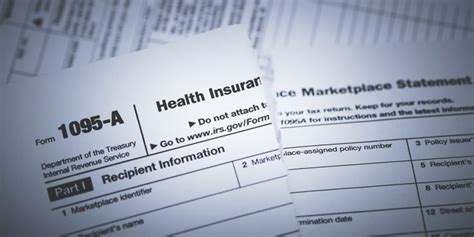Do You Get Penalized For Not Having Medical Insurance

In many countries, including the United States, the topic of healthcare and medical insurance is a complex and often contentious issue. While access to healthcare is a fundamental right, the specific laws and regulations surrounding medical insurance and the potential penalties for not having coverage can vary significantly from one country to another. This article aims to delve into the world of medical insurance, exploring the potential consequences of not having coverage and the impact it can have on individuals and societies.
The Importance of Medical Insurance

Medical insurance, also known as health insurance, plays a vital role in ensuring individuals have access to necessary healthcare services without facing financial hardship. It provides a safety net, covering a range of medical expenses, including doctor visits, hospital stays, prescription medications, and specialized treatments. Without insurance, the cost of healthcare can be prohibitively expensive, leading to potential financial ruin for many individuals and families.
In countries with robust healthcare systems, medical insurance is often a crucial component, allowing for the equitable distribution of healthcare resources and the prevention of catastrophic healthcare costs. It ensures that individuals can receive timely and appropriate medical care, promoting overall health and well-being.
Penalties for Lack of Medical Insurance

The consequences of not having medical insurance can vary widely depending on the country and its healthcare system. In some nations, there may be no direct penalties for lacking insurance, but individuals may face significant financial challenges when accessing healthcare services. On the other hand, certain countries have implemented specific penalties or incentives to encourage individuals to obtain insurance coverage.
The United States: A Complex Landscape
The United States provides an interesting case study when examining penalties for lack of medical insurance. In recent years, the U.S. has seen significant changes in its healthcare system, with the implementation of the Affordable Care Act (ACA) in 2010.
Under the ACA, individuals were initially required to have minimum essential coverage or face a tax penalty, also known as the individual mandate. This mandate aimed to encourage individuals to obtain insurance, as it was believed that a healthy insurance pool would help stabilize premiums and ensure the sustainability of the healthcare system. However, the individual mandate was repealed as of January 1, 2019, and there is currently no federal penalty for not having insurance.
Despite the absence of a federal penalty, certain states within the U.S. have implemented their own penalties or incentives for lacking insurance. For example, Massachusetts, the first state to require health insurance coverage, still imposes a penalty on individuals who do not maintain minimum insurance coverage.
| State | Penalty for Lack of Insurance |
|---|---|
| Massachusetts | Individuals without insurance must pay the higher of 50% of the lowest-cost bronze plan or $2,080 for individuals and $2,700 for families, up to a maximum of 12 months. |
| ... | ... |
| New Jersey | New Jersey is considering a proposal for a shared responsibility payment, but the details are still being worked out. |

These state-level penalties demonstrate the varying approaches to encouraging insurance coverage within the U.S.
Other Countries’ Approaches
Beyond the U.S., other countries have their own unique ways of addressing the issue of uninsured individuals.
For instance, in Canada, which has a publicly funded healthcare system, there is no specific penalty for not having insurance. However, individuals may face significant costs for services not covered under the provincial or territorial health insurance plans, such as prescription medications, dental care, and vision care. These out-of-pocket expenses can become a financial burden for those without supplemental insurance.
In the United Kingdom, with its National Health Service (NHS), there is no direct penalty for not having insurance. The NHS provides universal healthcare coverage, funded through general taxation. While most healthcare services are free at the point of use, some services, like prescription medications and dental care, may have associated costs.
In contrast, countries like Germany and the Netherlands have a compulsory insurance system. In these countries, individuals are required by law to have health insurance, and those who fail to comply may face legal consequences, including fines or even imprisonment in extreme cases.
The Impact of Lack of Medical Insurance
The absence of medical insurance can have significant implications for individuals and societies as a whole.
Financial Burdens
Perhaps the most immediate impact of lacking insurance is the financial burden it places on individuals. Without insurance coverage, individuals must pay for medical expenses out of pocket, which can quickly become unaffordable, especially for those with chronic illnesses or unexpected health emergencies. This can lead to medical debt, bankruptcy, and long-term financial instability.
Limited Access to Healthcare
Without insurance, individuals may delay or forgo necessary medical care due to the high costs involved. This can result in the worsening of health conditions, the development of complications, and even preventable deaths. Limited access to healthcare can disproportionately affect vulnerable populations, including low-income individuals, the elderly, and those with pre-existing conditions.
Inequalities in Health Outcomes
The lack of medical insurance can contribute to inequalities in health outcomes. Studies have shown that uninsured individuals often have poorer health outcomes compared to their insured counterparts. They may experience higher rates of chronic diseases, have worse disease management, and face higher mortality rates. This highlights the crucial role of insurance in promoting equitable access to healthcare and improving overall population health.
The Future of Medical Insurance
The landscape of medical insurance is continually evolving, and the future holds both challenges and opportunities. As healthcare costs continue to rise globally, finding sustainable solutions to ensure widespread access to healthcare remains a pressing issue.
Potential Solutions
Several approaches have been proposed to address the issue of uninsured individuals and promote universal healthcare coverage.
- Expanding Publicly Funded Healthcare: Some countries are exploring ways to strengthen their publicly funded healthcare systems, ensuring that more services are covered and reducing out-of-pocket expenses for individuals.
- Implementing Universal Basic Income (UBI): UBI, a concept gaining traction in some circles, aims to provide a minimum income to all citizens, which could potentially make insurance more affordable and accessible.
- Improving Insurance Affordability: Governments and insurance providers can work together to develop innovative insurance models, subsidize premiums for low-income individuals, and implement cost-control measures to make insurance more affordable.
- Promoting Preventive Care: Emphasizing preventive healthcare measures can help reduce the overall cost of healthcare and improve population health, making insurance more sustainable.
Global Trends
On a global scale, there is a growing recognition of the importance of universal healthcare coverage. The World Health Organization (WHO) has made it a priority to ensure that all individuals have access to essential healthcare services without facing financial hardship. Many countries are making strides towards achieving this goal, with some implementing national health insurance schemes and others expanding their existing healthcare systems.
Conclusion

The question of whether individuals get penalized for not having medical insurance is a complex one, with no single answer applicable to all countries. While some nations have implemented penalties or incentives to encourage insurance coverage, others rely on publicly funded healthcare systems or a mix of private and public insurance. The absence of insurance can have significant financial and health-related consequences, highlighting the critical role of insurance in promoting access to healthcare and improving overall population health.
As we navigate the evolving landscape of healthcare and insurance, it is essential to continue advocating for equitable access to healthcare and exploring innovative solutions to ensure that no one is left without the medical care they need.
What happens if I can’t afford medical insurance?
+In many countries, there are programs and subsidies available to help individuals who cannot afford insurance. These programs often have income-based eligibility criteria and can provide access to affordable or free healthcare. It’s essential to research and understand the specific programs available in your region.
Are there any alternatives to traditional medical insurance?
+Yes, there are alternative healthcare financing models, such as community-based health plans, cooperative insurance, and micro-insurance. These models often focus on providing affordable healthcare to specific communities or demographics. Additionally, some countries offer public healthcare plans that cover a basic level of care for all citizens.
How can I find affordable medical insurance options?
+Researching and comparing insurance plans is crucial. Many countries have websites or resources that provide information on insurance options, including costs and coverage details. Additionally, seeking advice from insurance brokers or healthcare professionals can help you navigate the complex world of medical insurance and find the most suitable and affordable plan for your needs.



